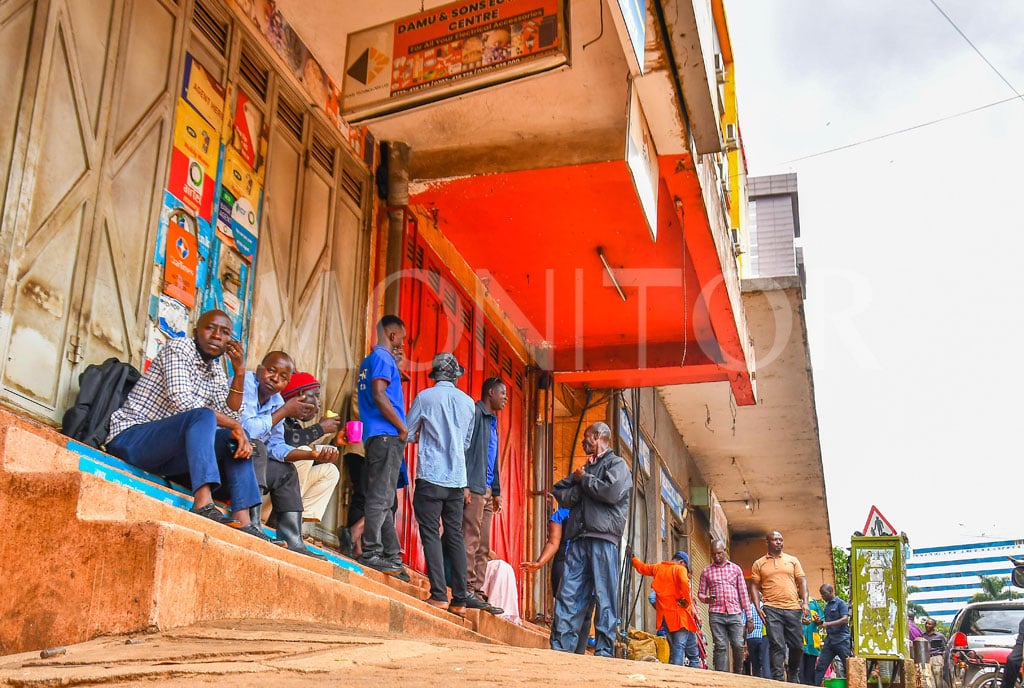Emin Pasha’s legacy in Nebbi

The hotel that was constructed at Fort Emin Pasha in Wadelai. Locals believe that with such a facility plus a resource centre, the fort can become a major tourism attraction. Photo by Patrick Okaba.
What you need to know:
Although Emin Pasha left this world several decades ago, his legacy still remains in a small village in northern Uganda. And with the right management, this can be a major tourist site in the region.
The road to Pabebo community in Nebbi District that lead to where the colonial administrator, Emin Pasha, once established a fort, is not a smooth one.
There is visibly no life at the site where the man had set up his base until one sees the houses that were recently constructed.
At the site sits a borehole which is about five metres away from the waterfront. There is also a renovated monument.
Wadelai is a village in northern Uganda on the Albert Nile bank and was the final chief station of Emin Pasha as Governor of Equatorial Province.
At the landing site are canoes, which are mainly used by some locals for fishing as this is the main economic activity practised in this place.
Here, an inscription on a six-foot high monument reads: “Wadelai Egyptian Station 1879-87, Headquarters of Equatoria under Emin Pasha.”
The place came to be known after the British built a government station there, on a hill standing about 160 to 200 feet above the Nile, at a spot where the river narrows.
Tracing the history of the site
Wadelai, 30km by road from Pakwach, was first visited by a European, Lt. H. Chippendall in 1875, and was named after a chieftain who, when visited by Gessi Pasha (on the occasion of that officer’s circumnavigation of Albert Nyanza), ruled the surrounding district as a vassal of Kabalega, King of Bunyoro.
On November 25, 1888, the Mahdists attacked Dufile but were, for the first time in many years, defeated by Emin Pasha’s forces after four days of heavy fighting in which they lost about 210 fighters.
By the time of the attack, Pasha was at Wadelai. After the fighting, Dufile in present day Moyo District was abandoned when Selim Bey, the commander with most of his Nubian soldiers and their families, moved southwards to Wadelai. It is believed that the majority of the descendants of Pasha’s forces (Nubians) today live in Bombo.
When Charles Gordon, who had made Pasha governor was killed, a rescue mission headed by HM Stanley was organised. Thereafter, Stanley’s expedition began as a relief mission to aid Pasha, whose connections was cut out since the outbreak of a Muslim revolt six years earlier.
A fight on board the steamers between the porters and Sudanese mercenaries was the beginning of a series of catastrophes that befell the expedition –hunger, illness, infighting and attacks from local inhabitants.
However, when Stanley finally found Pasha at Wadelai on April 29, 1888, he was in such bad shape that it was he and his few surviving men that needed rescue from Pasha. Curiously, Pasha did not want to be rescued. He did not want to go anywhere.
Pasha leaves
However, after a year, Pasha reluctantly followed Stanley to Bagamoyo in Tanzania. Unfortunately, Pasha fell from a window at the venue of the reception that had been organised for them and broke his ribs. So Stanley left for Europe without his prize.
After recovering, Pasha again decided he did not want to go to Europe. He came back into the interior after joining the service of his native country — Germany. In 1892, a hundred miles south of Stanley Falls, Pasha, while on another exploration adventure, was murdered by Arab slave traders.
After the departure of Pasha and his troops, the Mahdists took control of Wadelai. In 1894, the British flag was hoisted at Wadelai, on both banks of the Nile, by Major ER Owen. Winston Churchill years later described Wadelai as “newly abandoned to ruin” after a visit in 1907.
In 1910, US president Theodore Roosevelt, visited Wadelai while on a hunting expedition to Rhino Camp. Then the site came to be a rich tourist potential but without proper management.
Rehabilitation into a tourist site
Having been abandoned for a long period, the German government has now given 10,000 Euros (Shs34.5m) to kick-start the project of turning into tourist site.
According to the German Ambassador, Klaus Dieter Duexmann, the historical features would be developed into a community cultural tourism site.
“We are extending this support because Pasha was a true citizen of Germany. We call upon the government and community to support the tourism cultural sites for both income generating activities and as study centre for the people of Uganda and worldwide for historical events,” he said. Pasha was a German, who had converted to Islam and whose previous name was Eduard Schnitzler.
The chairman Pabebo community, Mr Okello Pacutho, said the place would bring them inter-districts business and will be a global centre for historical events if it is well developed
The commissioner for Museums and Monuments at the Ministry of Tourism, Wildlife and Antiquities, Rose Nkaale, says the Emin Pasha Fort was one of the historical cultural sites the government had gazetted in the 1972 to benefit both the communities and government.
“The communities should identify many cultural sites such that the ministry of tourism could turn them to tourism site for income generating activities. We have many sites in Uganda which are unutilised due to lack of information about the place,” Nkaale said.




